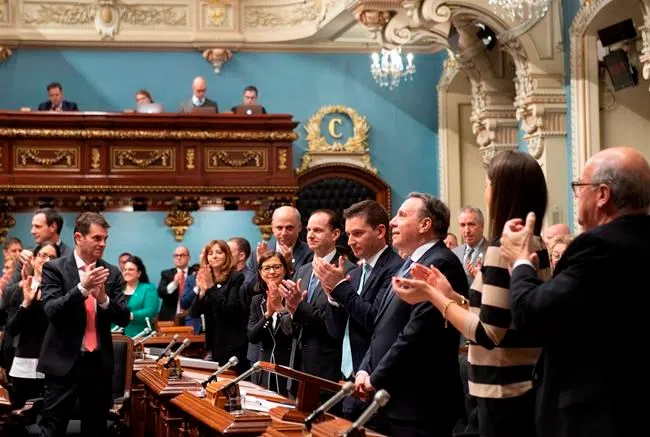
Legault says government will act quickly on religious symbols in civil service
QUEBEC — The Quebec government will move quickly to prohibit the wearing of religious symbols by teachers and other public-sector workers in positions of authority, Premier Francois Legault said Wednesday.
Addressing the legislature for the first time since his Coalition Avenir Quebec was elected Oct. 1, Legault said Quebecers have had enough of the debate over secularism.
“The wearing of religious symbols will be banned from state employees in positions of authority, including primary and secondary school teachers,” he said.
“It’s a reasonable position. We will therefore be very firm, and we will move quickly.”